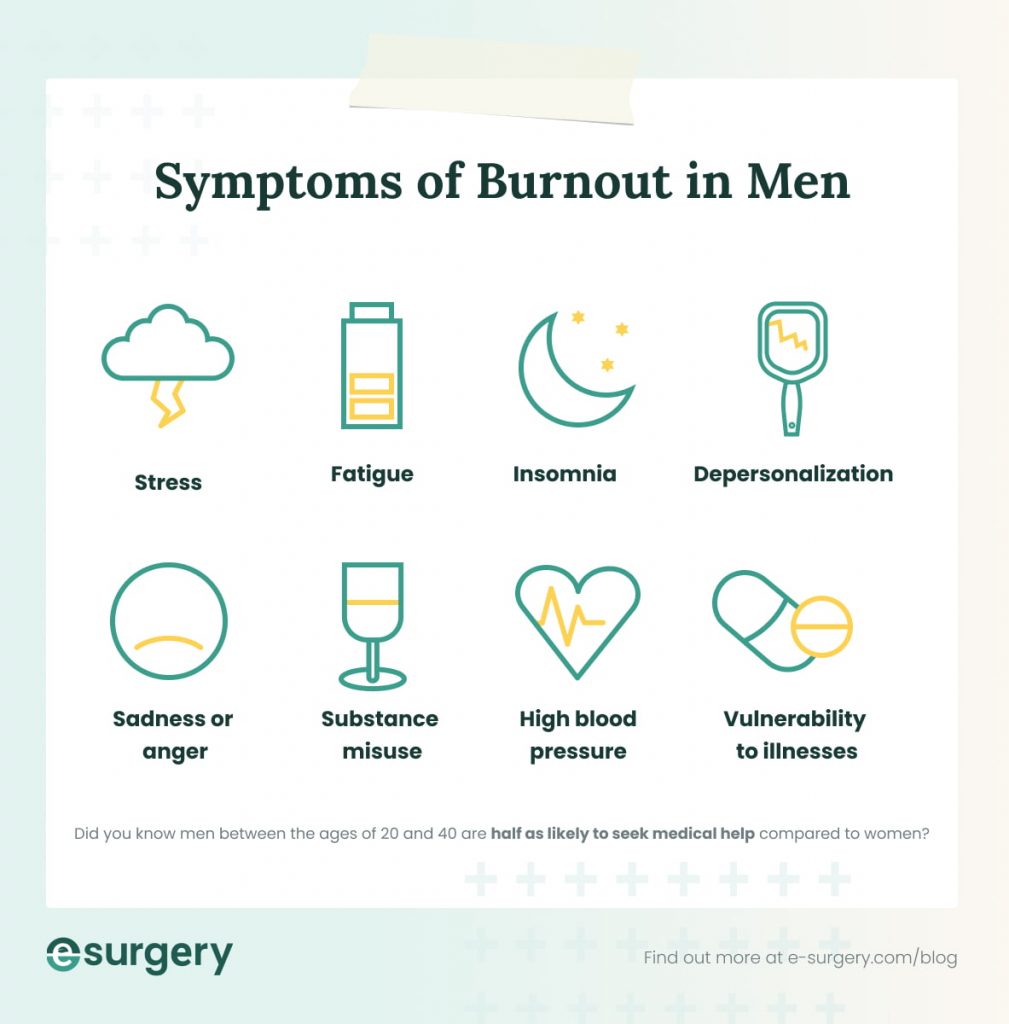
Should we be worried about burnout?
The conversation around men’s health is a new and developing subject. For years ‘boys don’t cry’ was the common opinion, this ‘suck it up’ mentality extending to all areas of men’s health from the mental to the physical. Now don’t get me wrong, with NHS funding struggling even before the pandemic, and healthcare workers being stretched further than ever, not only men are suffering. But it is important to consider that men between the ages of 20 and 40 are half as likely to seek medical help compared to women.
What is burnout in men?
Burnout is described as a ‘physical or mental collapse caused by overwork or stress’.
Unlike diagnosable conditions such as depression and anxiety, we have all experienced burnout to some extent. According to a 2021 survey, 52% of US workers were experiencing burnout, an increase of 9% from pre-covid numbers. In addition, those who work over 40 hours a week are 6 times more likely to develop burnout, and with longer working hours becoming the norm since the covid pandemic it is no surprise that burnout is becoming a problem for men worldwide.
The reason men are at the center of this story is because they are 7% more likely to attempt to get through burnout alone, rather than seeking outside help. With men making up three-quarters of suicides in Britain it’s more important than ever to change the narrative around men’s health.
Burnout can be caused by a number of issues, but in the majority of cases work-related stress is a key factor. This can include unclear expectations, feeling out of control, extreme workloads, and a lack of work/life balance.

The symptoms of burnout in men and women
Women more often experience a sense of emotional exhaustion, whereas men are more likely to experience depersonalization. Depersonalization is the experience of feeling unreal, detached, and often, unable to feel emotion, which of course would be stressful and upsetting for anyone.
Another common symptom of burnout for men is cynicism, a feeling of pessimism and irritability that can seep into other areas of life such as relationships. This can lead to inefficiency and a lack of productivity which further increases the prevalence of the two previous symptoms. Although, men find it harder to recognize signs of inefficiency in their work compared to women, possibly due to the fact that men are twice as likely as women to have inadequate health literacy.

Other symptoms of burnout
• Excessive stress
• Fatigue
• Insomnia
• Sadness, anger or irritability
• Alcohol or substance misuse
• Heart disease
• High blood pressure
• Type 2 diabetes
• Vulnerability to illnesses
What can I do if I am experiencing burnout?
As burnout tends to be a combination of different factors, there isn’t one cure-all treatment or medication. If the symptoms you are experiencing are becoming overwhelming or unmanageable, we would always recommend you visit your GP and discuss what your options might be. Although it can seem unbearable, there is always a solution.
Some jobs are more stressful than others, in fact 1 in 3 Doctors experience some kind of burnout symptoms everyday (read our article on the 6 jobs that can cause illness for more information). A good way to manage burnout is to analyze what part of your job is causing the stress and find ways to deal with it. For example, if you feel overworked make sure you take a full lunch break and create an adequate work-life balance by leaving your work behind you when you leave the office.
Stress management is different for everyone, but some tried and tested methods include exercise, meditation, counseling, keeping a stress diary, and taking time away from work. Even small acts like taking care of a house plant can reduce daily stress!

If you found this article useful check out our mental health survival guide to post grad life.
Further Reading
- Men and Mental Health | Mental Health Foundation
- Get Support From A Mental Health Charity | NHS
- A Guide To Burn Out | healthline
- Burn Out Is Real. Here’s How To Work Through It. | Men’sHealth







